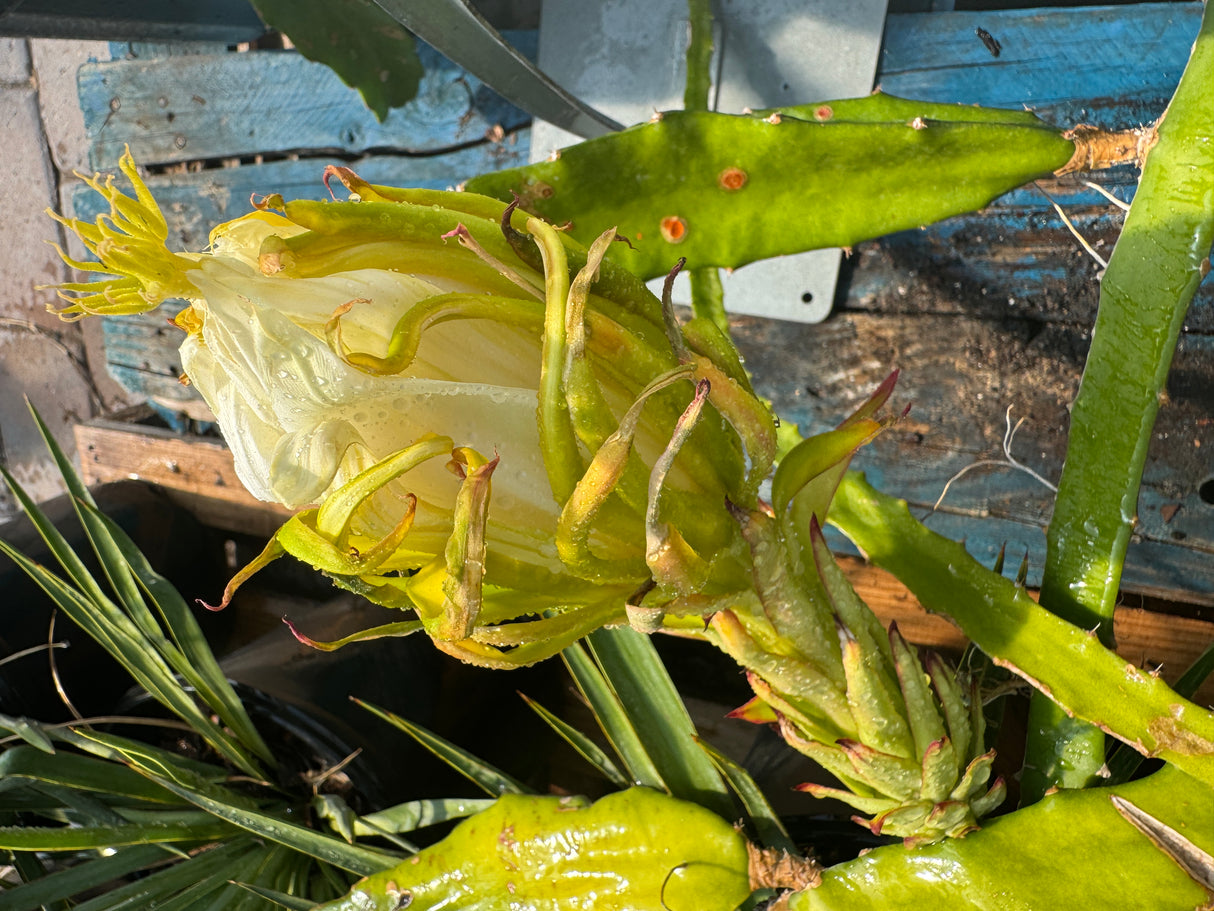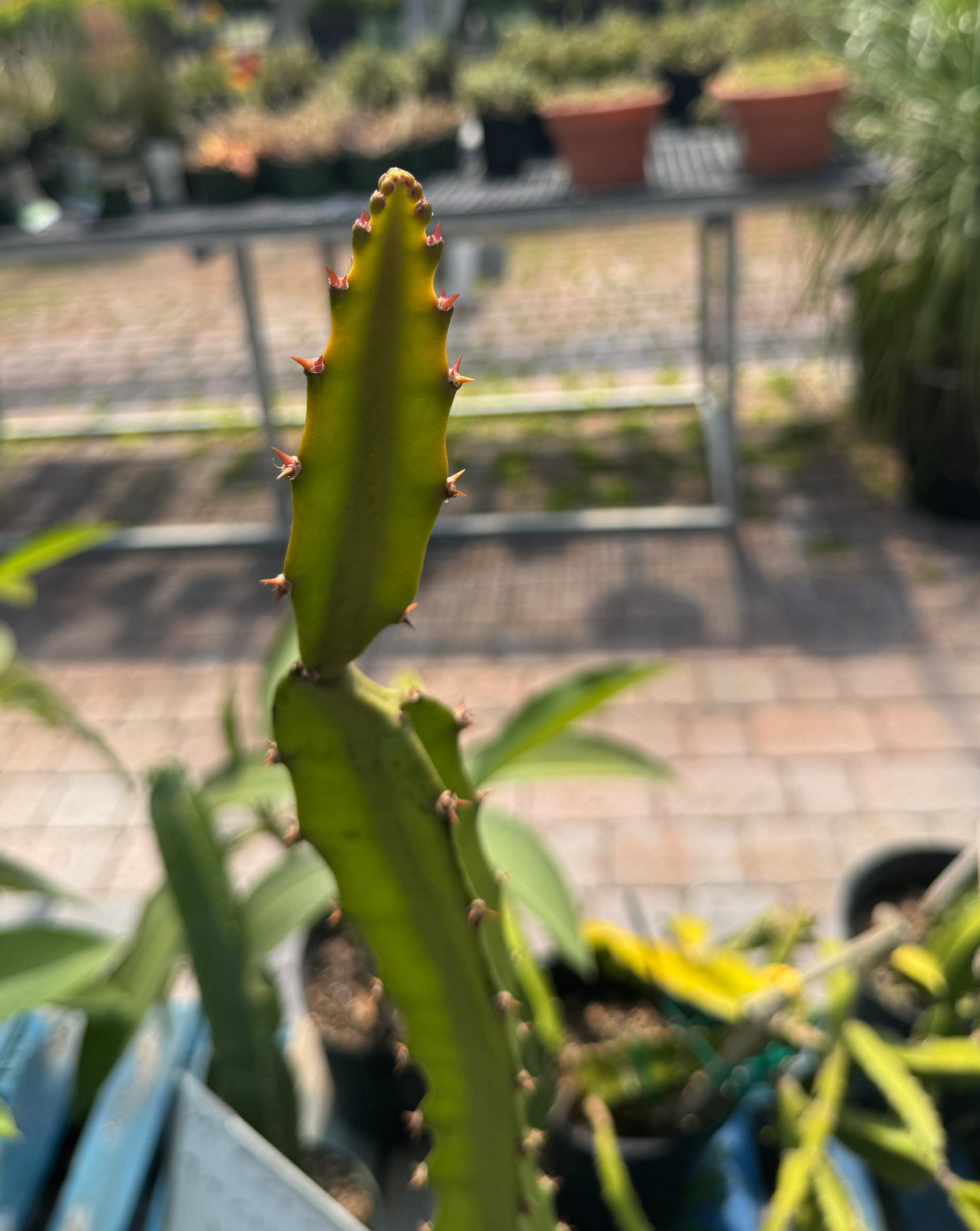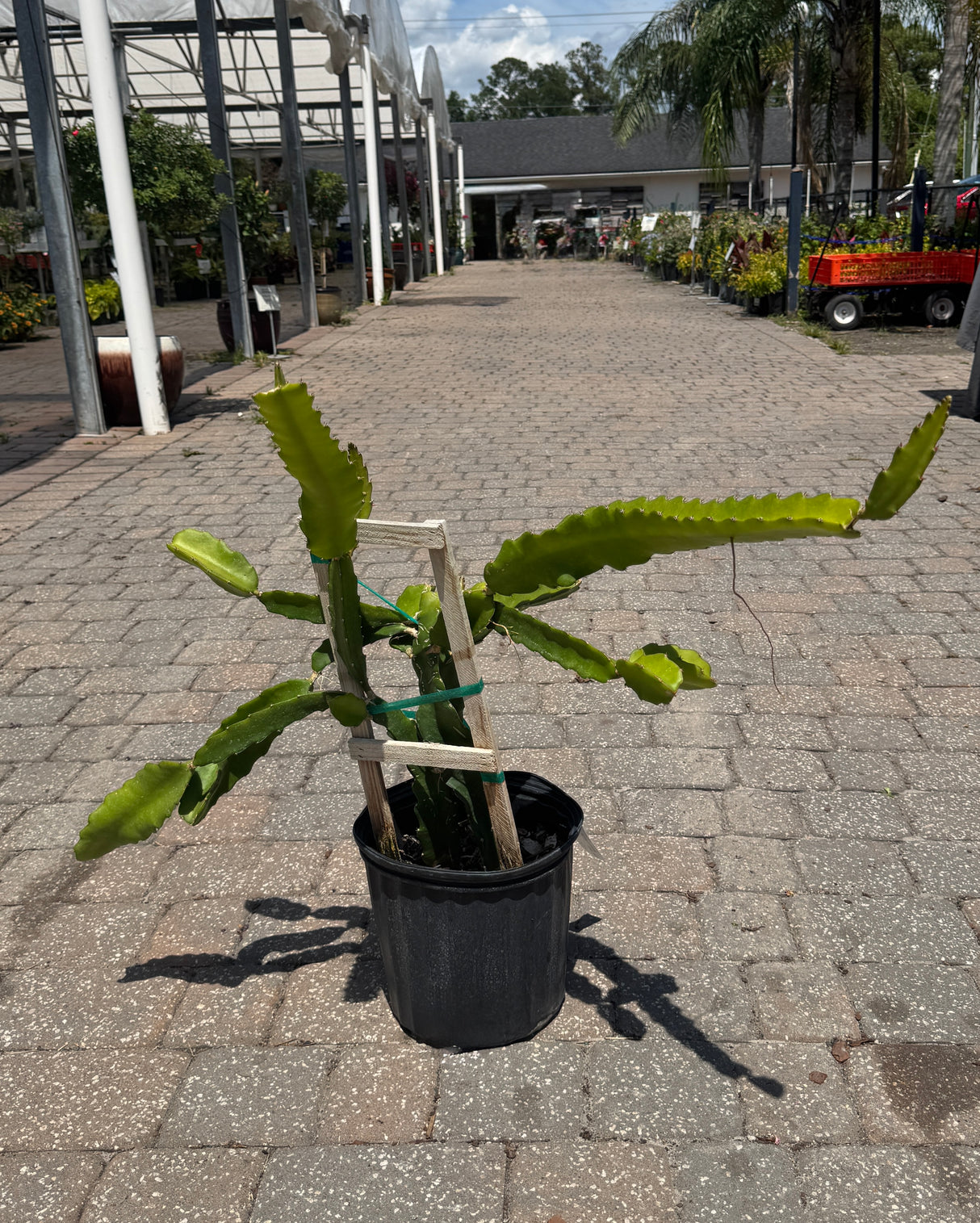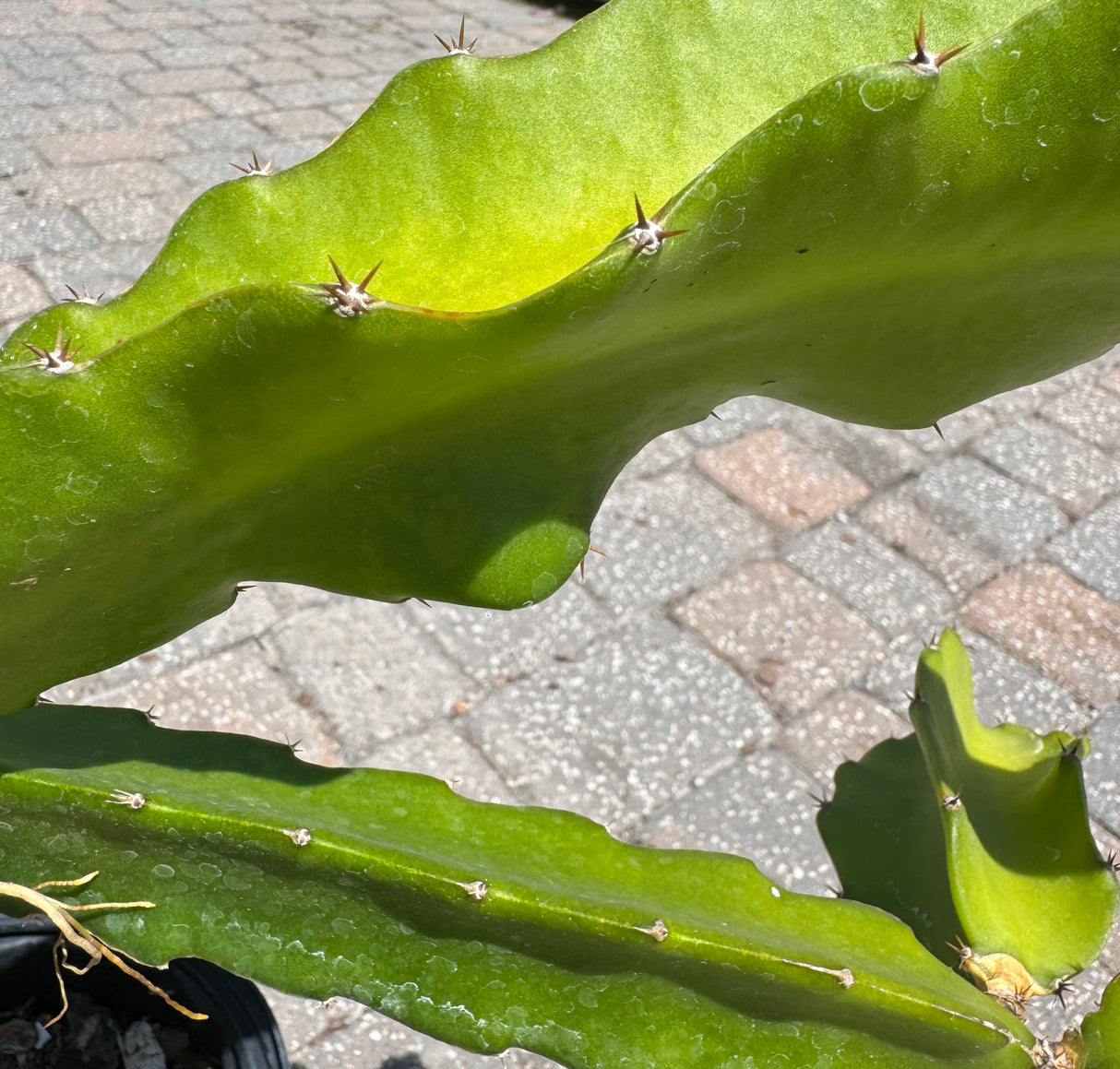Dragon Fruit
Delivery and Shipping
Delivery and Shipping
All delivery timeframes are approximate but not guaranteed, once placed the delivery date will have to be confirmed. Also note the delivery is to the end of the truck only and does not include installations. To read the full Shipping and Delivery Policy
Dragon Fruit Cactus (Hylocereus spp.), also known as pitaya, is a climbing, night-blooming cactus native to Central and South America. It produces large, fragrant white flowers that open after dark, followed by striking, brightly colored fruits with sweet, mildly tangy flesh speckled with tiny seeds. In Florida, dragon fruit is grown both as an edible crop and as an ornamental plant, adding tropical flair to gardens and patios. With proper support, its long, three-sided stems can climb trellises, posts, or arbors, creating an eye-catching feature.
Care Needs:
- Light: Full sun for best flowering and fruiting
- Water: Moderate; water deeply when soil is dry, but avoid waterlogging
- Soil: Well-draining, sandy or loamy soil enriched with organic matter
- Temperature: Hardy in USDA zones 10–11; protect from frost
- Growth Rate: Fast
- Pruning: Prune regularly to remove damaged stems and control size
- Fertilizer: Apply a balanced fertilizer during the growing season to encourage blooms and fruit
- Pollination: Some varieties require cross-pollination; others are self-fertile
Attributes










